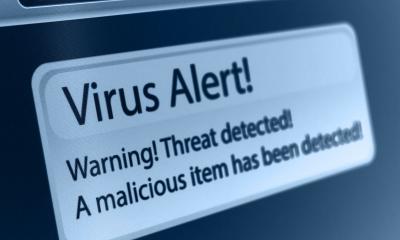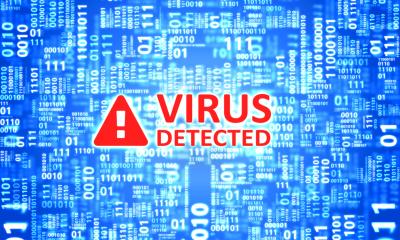
Security and anti-virus software plays an essential role in protecting your servers, systems, software and computers
It provides a key line of defence by detecting, blocking and removing viruses, spyware and malware (malicious software including ransomware) before it can do any lasting damage.
Security and anti-virus software can also protect all data you store, including customer and financial information.
There are multiple security solutions available, which can make it hard to choose. Here’s what you need to know about buying security and ant-virus software.
What is security and anti-virus software?
Security software helps keep your company computers and network secure by analysing files and data for anything that looks suspicious.
Most security packages will:
- Monitor files to ensure they haven't been infected by a known virus or piece of malware.
- Checkyour computer's network and internet connection to protect against malicious software or hackers that are attempting to gain access to your system.
- Check files as they enter your network, usually by scanning email attachments, links and any downloaded files.
- Periodically scan all the data on your computer, to search for undetected malware that may be lurking somewhere.
Do I need security software for my Mac?
Historically, Apple Macs have suffered fewer security problems than Windows computers. However, as Apple's market share has grown, so has the number of threats.
These days, it's wise to run security software on your Mac.
As well as protecting you, it will reduce the risk of unwittingly passing viruses on to colleagues or contacts that have Windows computers.
Viruses and malware can spread through infected websites, emails and files that are sent to your business.
Security and anti-virus software identifies these threats by comparing files on your computer to the electronic 'signatures' of known viruses.
Although security software can massively reduce the chances of your business suffering a virus infection, it's not infallible. Most packages only protect reliably against known threats and new threats are emerging almost every day.
You’ll also need more than just security and anti-virus software to stay safe. It won't stop thieves making off with your server, a dishonest employee stealing your company database, or a fire damaging your IT equipment.
To ensure total protection, your business needs a robust security plan, IT policies, good staff training and a backup system to guard against data loss and theft.
Types of security software
There are many security and anti-virus packages on the market. Most offer similar core protection, including:
- Virus and malware protection, to protect your systems from known viruses.
- A firewall, to block suspicious network connections to and from your computer.
- Email protection, to block dodgy attachments and 'phishing attempts' – these are emails that look genuine but are scams to trick you into sharing sensitive information.
It's cost-effective and sensible to select a single package that offers all these functions in one.
There are two main types of software:
- Standalone software – Standalone software must be installed and managed on each computer separately. It's simple to set up, but easy to disable if your staff feel it's getting in the way or slowing down their systems. This could leave you vulnerable. Standalone software is suitable for small companies with five or fewer staff who want a simple solution that they can use without needing technical support.
- Centralised software & cloud services – Centralised software, often delivered through the cloud, provides you with a control panel to monitor and manage security protection across your business. The simple dashboard provides peace of mind that everything is protected. You can remotely schedule updates, and ensure that all users are running the latest version of anti-virus software.
Every computer and server in your business should be protected by security software. You should also consider installing it on mobile devices, including all tablets and smartphones owned by your business, especially if they hold critical data.
Choosing anti-virus and security software
Because security and virus protection is so critical, it's crucial to select software from a reputable company.
Some big names in the market include McAfee, Panda, Kaspersky and Norton.
Expect to pay £20 - £50 per user or device, including updates for two years.
Before selecting a security package, speak to an independent IT supplier or support company. They can discuss your options and help you to choose a security software platform that’s built for your business.
There are a few decent free packages available, such as those from AVG and Avast!. However, these may be light on features or only suitable for home use.
Anti-virus software is only as good as your updates
Once you've installed and configured your security software, you must keep it up to date. New threats emerge daily, so the software should check for updated signatures at least once a day.
Thankfully, most security software automatically searches for new threats and installs updates automatically.
After the first year or two, you'll probably have to pay a monthly or annual fee to receive updates. Do not be tempted to cancel your subscription, as this will leave you vulnerable to new threats. When security software is so cheap, it’s not worth taking the risk.


